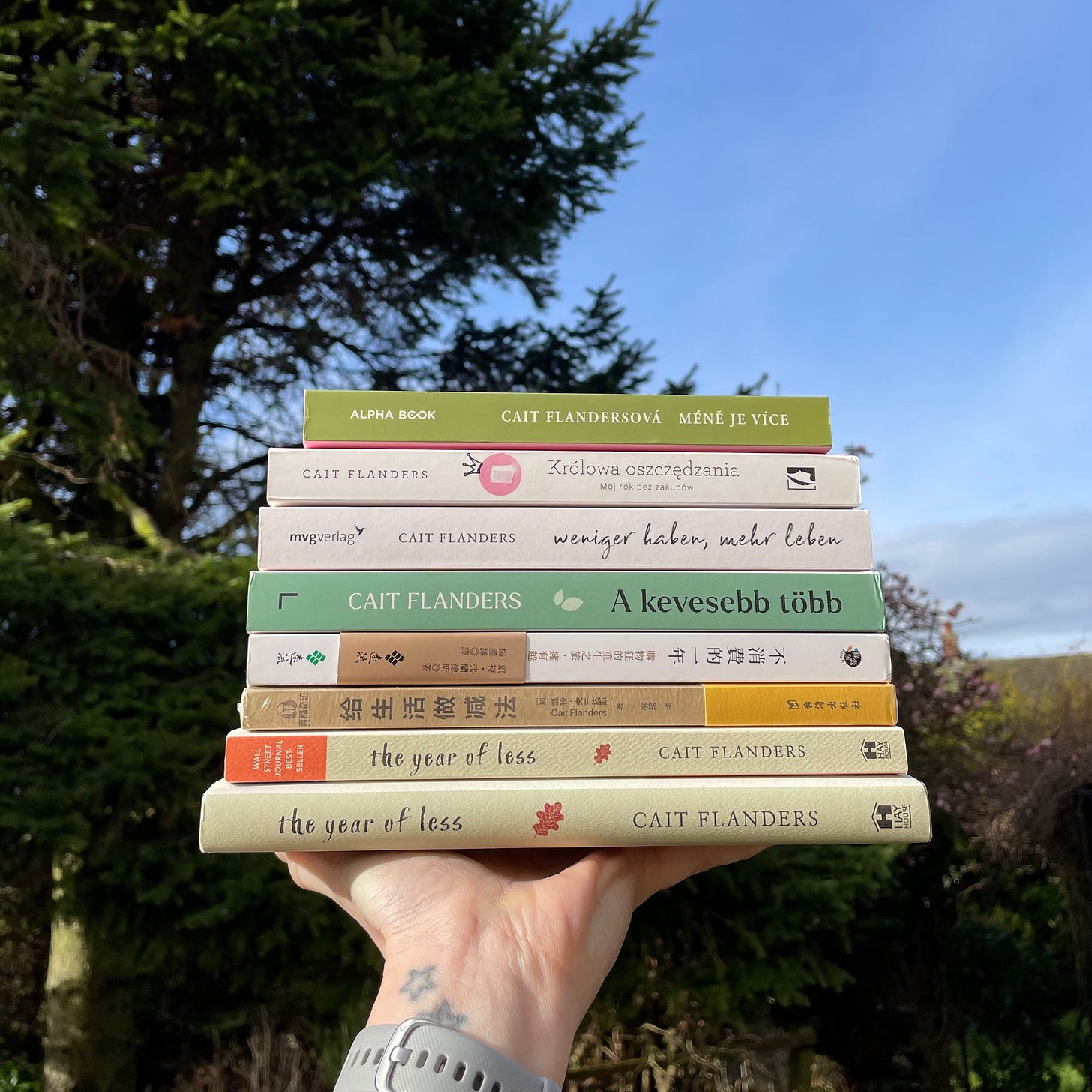
Hi friend,
It’s hard for me to believe this, but 2014 marks ten years since I first setup the personal experiment that changed the trajectory of my life. What started as an idea to get some control on my spending and save more money turned into a successful experiment (and successfully documented experiment) that went viral and led to my first book deal (for THE YEAR OF LESS).
That experiment was, of course, a yearlong shopping ban: a challenge to not buy anything for a year, unless I absolutely needed it. No clothes, no shoes, no books, nothing for my home. I did it—for a full two years, in fact. I learned a lot and saved a lot of money. And then, as a true surprise to me, I even got to earn some money from writing a book about it. But the ban also changed my relationship with shopping in a way I couldn’t understand after, and can probably only begin to explain now that nearly a decade has passed.
Namely, it left me in a state of feeling as though buying things was bad. And that is simply not true.




